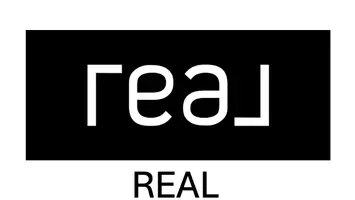
The Denver Real Estate Market: A Year in Review for 2024
As 2024 comes to a close, it’s time to reflect on the Denver real estate market’s performance and what buyers and sellers should anticipate heading into 2025. This year brought notable trends, challenges, and opportunities that shaped the market’s trajectory. Whether you’re considering buying, selling, or investing, understanding the past year’s landscape is crucial to making informed decisions. A Market Defined by Resilience and Change The Denver metro real estate market demonstrated remarkable resilience in 2024, navigating through economic fluctuations and shifting buyer preferences. While the market remained competitive, certain trends emerged that defined this year: Moderating Home Prices: After years of consistent appreciation, Denver saw a stabilization in home prices. The median home price increased by a modest 3% compared to the double-digit gains of previous years. This shift provided a more balanced environment for buyers. Rising Interest Rates: Mortgage interest rates climbed above 7% for most of the year, impacting affordability. This led many buyers to explore creative financing options, including rate buydowns and adjustable-rate mortgages. Inventory Growth: Inventory levels saw a slight uptick, offering buyers more choices. However, inventory remained below the historical average, maintaining a degree of competition in certain price points and neighborhoods. Emphasis on Sustainability: Buyers increasingly prioritized energy-efficient features, sustainable materials, and homes equipped with smart technology. This trend reflects broader environmental concerns and a desire to reduce long-term costs. What Home Buyers Need to Know Affordability Strategies: With higher mortgage rates, affordability remains a top concern for many buyers. Work closely with a trusted lender to explore loan options tailored to your financial situation. Additionally, consider properties slightly below your budget to leave room for rate fluctuations. Neighborhood Insights: The Denver metro area offers a wide variety of neighborhoods, each with its own character and price points. Emerging areas like Green Valley Ranch and Montbello saw significant growth, offering more affordable options without sacrificing amenities. Negotiation Opportunities: Stabilizing prices and rising inventory mean buyers may have more leverage to negotiate. Don’t hesitate to request seller concessions, such as closing cost assistance or funds for home improvements. Prepare for Competition: Despite some moderation, desirable properties in prime locations still attract multiple offers. Be prepared to act quickly and make strong, informed offers when necessary. What Home Sellers Need to Know Pricing Strategies: Pricing your home correctly remains critical. Overpricing can lead to extended time on the market, while competitive pricing can generate more interest and potentially multiple offers. A real estate professional can provide a comparative market analysis (CMA) to guide your decision. Market-Ready Homes: Buyers continue to value move-in-ready homes. Consider small upgrades like fresh paint, landscaping, or energy-efficient appliances to enhance your property’s appeal. Flexible Offers: With buyers facing higher interest rates, offering incentives such as rate buydowns or covering a portion of closing costs can make your home more attractive. Timing Matters: The seasonality of real estate still plays a role in Denver. While spring and summer remain the most active times for sales, well-prepared homes can sell year-round in this market. Looking Ahead to 2025 The Denver market is expected to continue evolving in 2025. While affordability will remain a key focus, the city’s vibrant economy and lifestyle advantages ensure its appeal remains strong. Buyers and sellers alike should stay informed and work with experienced professionals to navigate the complexities of the market. If you’re planning to buy or sell in 2025, let’s connect to discuss your goals and how to position yourself for success. With over 23 years of experience in the Denver metro area, I’m here to help you make the most of your real estate journey.

Schools and Education: How They Influence Home Buying Decisions in Denver
Schools and Education: How They Influence Home Buying Decisions in Denver When searching for the perfect home, many factors influence the decision-making process—location, affordability, square footage, and amenities often top the list. But for families or future parents, there’s another crucial element to consider:schools and education. In Denver, a city known for its dynamic neighborhoods and family-friendly atmosphere, the quality of schools can be a deciding factor in where buyers choose to plant roots. Why Schools Matter in Home Buying Schools are more than just an educational facility for children; they play a vital role in shaping the community and influencing property values. A home located near a high-performing school is often seen as a valuable investment, even for buyers without children, as properties in these areas typically appreciate more steadily over time. For families, being within a desirable school district or close to specific schools can provide peace of mind. Parents prioritize their children's access to quality education, shorter commutes, and safe routes to and from school. Even households without children may recognize the appeal, as homes near great schools often have higher resale potential and market demand. Denver’s School Landscape Denver offers a diverse array of educational opportunities, from public schools within the Denver Public Schools (DPS) district to top-rated charter schools, magnet schools, and private institutions. Schools such as Denver School of the Arts, East High School, and Steck Elementary often appear on homebuyers’ wish lists due to their strong academic programs and community engagement. In addition to traditional schools, the Denver metro area boasts unique educational options like bilingual programs, STEM-focused institutions, and experiential learning environments, appealing to families with varied needs and priorities. How Schools Impact Home Prices Proximity to well-regarded schools can directly impact property prices. Homes located in sought-after districts such as Cherry Creek or Littleton often command higher prices than similar homes in less desirable school zones. This is a key consideration for buyers weighing their budget against the benefits of access to quality education. The trade-off? Demand for homes in these areas can lead to competitive bidding situations. Buyers may need to act quickly and work closely with their real estate professional to secure the right property. Tips for Buyers Considering Schools If schools are a priority in your home search, here are a few tips to keep in mind: 1. Research School Ratings: Websites like GreatSchools.org provide detailed information on school performance, test scores, and parent reviews. 2. Visit Schools in Person: Tour the schools in your prospective neighborhood to get a feel for the environment and ask questions about curriculum, extracurricular activities, and support systems. 3. Check School Boundaries: District boundaries can be tricky. Work with your real estate agent to ensure the home you’re considering falls within the school district you prefer. 4. Consider Future Resale Value: Even if you don’t have children, homes near high-quality schools can be easier to sell in the future. 5. Weigh Commute Times: Look at proximity to schools and factor in commuting logistics to streamline your family’s daily schedule. How I Can Help Navigating the real estate market with schools in mind requires a strategic approach. As a Denver-area expert with over 23 years of experience, I can help you identify homes that align with your educational priorities while also meeting your budget and lifestyle needs. Whether you’re seeking a home in a top-performing district, exploring up-and-coming neighborhoods, or just starting to think about the school factor, I’m here to guide you every step of the way. Let’s find a home that supports your family’s goals and ensures a bright future. Contact me today to start your journey!

Home Inspection Essentials in Denver: What Every Buyer and Seller Should Know.
When buying or selling a home in the Denver Metro area, one of the most important steps is the home inspection. It’s a crucial moment for both buyers and sellers, as it can reveal potential issues that may affect the sale and offer peace of mind. Whether you're a first-time homebuyer or a seasoned seller, understanding the ins and outs of home inspections can help ensure a smoother real estate transaction. What Is a Home Inspection? A home inspection is an independent, visual assessment of a property's condition, usually performed after an offer has been accepted but before the sale is finalized. The inspector examines everything from the foundation and roof to plumbing and electrical systems. The goal is to uncover any potential issues or defects that may not be visible during an initial walkthrough. Why Home Inspections Matter For buyers, an inspection helps to identify any major repairs or maintenance issues before committing to the purchase. It can also give you leverage when negotiating with the seller, especially if significant problems are found. For sellers, scheduling a pre-inspection before listing can help you address potential issues upfront. This could prevent surprises during the sale process and give you confidence when pricing your home. Common Issues Found in Denver Home Inspections In the Denver Metro area, homes face unique challenges due to the climate and geography. Some common issues inspectors may find include: 1. Foundation Cracks: Colorado's clay-rich soil can expand and contract, leading to foundation movement and cracking. 2. Roof Damage: Due to high winds and hail, roofs in the area often show signs of wear and tear earlier than in other regions. 3. Radon: Denver homes are particularly prone to elevated radon levels due to our position on the Rocky Mountain Front Range. A radon test is a must during inspections. 4. HVAC Issues: With Colorado’s varying temperatures, heating and cooling systems often work overtime. It’s common for inspectors to flag aging or inefficient systems that may need repairs or replacement. 5. Water Drainage Problems: Given our occasional heavy rainstorms, drainage issues around the foundation can cause long-term problems if not properly managed. What Buyers Should Expect During the Inspection For buyers, it's important to attend the inspection, or at least the final walk-through. This allows you to ask questions and get a clear understanding of any issues that arise. After the inspection, you’ll receive a detailed report outlining the inspector's findings. If problems are discovered, you can negotiate with the seller to make repairs or adjust the price. Keep in mind that no home is perfect, especially in older neighborhoods. The key is to focus on major concerns that affect the home’s safety or functionality. What Sellers Should Know As a seller, consider getting a pre-listing inspection. This allows you to fix any problems before potential buyers see them. A pre-inspection can give you the upper hand by addressing issues on your own terms, which may even increase buyer confidence and lead to a smoother sale process. If you choose not to get a pre-listing inspection, be prepared for potential renegotiations after the buyer’s inspection report. The more proactive you are in maintaining your home, the fewer surprises you'll face later. Tips for a Successful Home Inspection Whether you’re buying or selling, here are a few tips to ensure the inspection process goes smoothly: - For Sellers: - Make sure all areas of the home are accessible, including the attic, basement, and crawl spaces. - Provide documentation of any recent repairs or improvements. - Declutter and clean to make a good impression. - For Buyers: - Hire a licensed, reputable inspector familiar with Denver’s market and housing issues. - Ask questions about the inspector’s findings and don’t be afraid to request further clarification. - Use the inspection report as a tool for informed negotiation, but be realistic—minor wear and tear is normal in any home. Final Thoughts A home inspection is a vital step in the real estate process, whether you’re buying or selling. By being proactive, understanding the inspection process, and knowing what to expect, you can avoid surprises and make well-informed decisions. As always, working with an experienced real estate professional can help guide you through this process and ensure that your transaction goes as smoothly as possible. If you have questions or need a referral to a trusted home inspector in the Denver area, feel free to reach out. My team and I are here to help!

Why Denver Attracts Out-of-State Buyers: The Appeal of Mile-High Living
Denver, often called the Mile-High City, is rapidly becoming one of the most sought-after destinations for out-of-state buyers. Nestled against the backdrop of the majestic Rocky Mountains, Denver offers a unique blend of urban sophistication and outdoor adventure, making it a top choice for those looking to relocate. But what exactly makes Denver so appealing to those beyond Colorado's borders? 1. A Thriving Job Market One of the key reasons people are flocking to Denver is the city’s booming job market. Denver has seen consistent job growth in industries such as technology, healthcare, and finance. Major corporations have established regional offices here, attracted by the educated workforce and the city's strategic location. For out-of-state buyers, Denver's employment opportunities provide a strong incentive to make the move. 2. Outdoor Lifestyle For those who love the great outdoors, Denver is nothing short of paradise. The city’s proximity to the Rocky Mountains means that world-class skiing, hiking, and mountain biking are just a short drive away. With over 300 days of sunshine per year, residents can enjoy these outdoor activities nearly year-round. This lifestyle is a significant draw for those coming from states where such recreational opportunities are limited. 3. Vibrant Cultural Scene Denver’s cultural offerings are as diverse as its landscape. From the Denver Art Museum and the Colorado Symphony to the city's burgeoning culinary scene, there's always something happening in Denver. The city is also home to a variety of festivals, concerts, and events that reflect its vibrant and growing community. Out-of-state buyers are often attracted to Denver’s dynamic culture, which offers a rich quality of life. 4. High Quality of Life Denver consistently ranks high in national quality-of-life surveys, and for good reason. The city offers excellent public schools, top-tier healthcare facilities, and a robust public transportation system. Neighborhoods like Cherry Creek, Washington Park, and LoDo offer a range of housing options, from historic homes to modern condos, appealing to a wide range of buyers. Additionally, Denver's commitment to sustainability and green spaces makes it an attractive option for those seeking a healthier, more balanced lifestyle. 5. Real Estate Value While Denver's real estate market has seen significant growth, it remains more affordable compared to other major metropolitan areas like San Francisco, New York, or Seattle. Out-of-state buyers find that their dollar goes further in Denver, allowing them to purchase larger homes or properties in desirable neighborhoods. The city's diverse real estate market offers something for everyone, whether they're looking for a downtown loft, a suburban family home, or a mountain retreat. 6. Community and Connection Denver's welcoming community is another factor that draws out-of-state buyers. The city is known for its friendly residents and a strong sense of local pride. Whether it's the tight-knit neighborhoods, local farmer’s markets, or community events, Denver offers plenty of opportunities for new residents to feel at home quickly. 7. Climate Denver’s climate is another significant attraction. The city experiences four distinct seasons, each offering its own unique appeal. From mild, sunny winters to warm, dry summers, Denver's weather is a pleasant change for many out-of-state buyers, particularly those moving from humid or extreme climates. Conclusion Denver's appeal to out-of-state buyers is undeniable. With its thriving job market, outdoor lifestyle, cultural vibrancy, and overall high quality of life, it’s no wonder that more and more people are choosing to make the Mile-High City their new home. Whether you're looking to buy a home or invest in property, Denver offers an incredible opportunity for growth, adventure, and a truly exceptional way of life. If you’re considering a move to Denver or want to learn more about the real estate opportunities here, feel free to reach out. As a seasoned real estate expert in the Denver Metro area, I’m here to help you find the perfect home to start your next chapter.
Categories
Recent Posts










